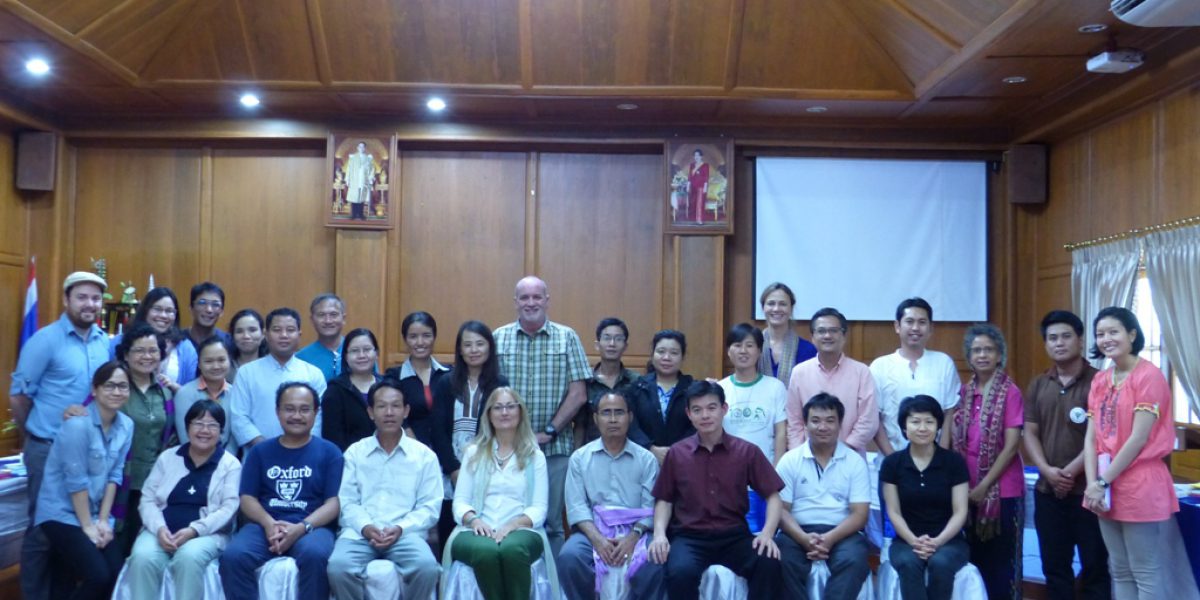Asia Pacific: JRS voices caution on Voluntary Repatriation of Myanmar refugees
18 December 2015

Mae Hong Son- Since the historic elections in Myanmar there has been a wave of optimism for national reconciliation that may allow for voluntary repatriation for the people JRS serves on the Thailand-Myanmar border. Only eight ethnic armed groups have signed the Nationwide Ceasefire Agreement and there is still uncertainty regarding security in some areas of the country. Refugees we accompany express this uncertainty. At the same time, JRS believes that life in a refugee camp is not a durable solution. Prolonging life in the camp can lead to dependency and JRS seeks to counterbalance a culture that does not lead to resilience and empowerment. This dilemma keeps JRS in a state of discernment and we also seek to help refugees in their own discernment.
In the first week of December The Karenni Refugee Committee, UNHCR, Thailand’s Ministry of Interior and World Education joined JRS staff as part of a 4-day workshop on Voluntary Repatriation hosted by JRS in Mae Hong Son, Thailand.
The JRS framework of response and principles of action is shaped by the hopes, fears, and aspirations of the people we serve, matching with the international standards of return: voluntariness, dignity and safety.
The aim of the workshop was to help participants to understand better and deeper the principle of voluntary repatriation of refugees and its operationalization so that JRS Thailand – Myanmar can develop a framework of accompaniment, service and advocacy in collaboration with Refugees, NGO’s, Governments and UN agencies to address concerns and needs of the refugees JRS serves. We are working in education on both sides of the border to be ready to accompany people when voluntary repatriation occurs.
A basic international standard guiding returnee protection is the principle of non-discrimination. JRS seeks to balance the aid provided to returning refugees and to the receiving and returning internally displaced persons. JRS works under the humanitarian principle of impartiality and will adopt responses based on needs and that support initiatives in the areas of capacity and trust building.
Within the international standards of return JRS has identified three components of action: Communication to refugees to help them make an informed decision on their repatriation; Education, especially youth development programs; and Trust-building. JRS Asia Pacific has addressed each international standard of return below.
Voluntariness of the decision to return:
“We love our country but our villages were burnt, we do not want to go back to that situation” – Female Refugee
Refugees must be involved and consulted in every part of planning and execution of voluntary repatriation. A well-informed decision by the family or individual is vital to all returnees and they must be made aware of the situation in the location of return in Myanmar through objective information.
Dignity:
“Most camp refugees come from remote areas where there is no access to social services, there are schools but no teachers, clinics but no medicines.” -Refugee leader
Refugees express that they would voluntarily repatriate if they had access to basic provisions of food, shelter, health and education in their communities in a safe environment. The locations of return may not have these basic services and the lack of access of humanitarian organizations to these locations, while improving, is not yet sufficient. JRS has a role to play to ensure that education is provided in the camps until repatriation takes place and to facilitate the future education of returnee children.
Safety:
“In the future, I would like to be a teacher and improve the education of our Karenni children, but only if the situation back home is safe”- Refugee student.
Refugees should not be sent back to a place that is still unsafe. The return itself should be safe; not situated in potentially disputed areas; paths should be cleared of mines. The areas where they go back to should be at least demarked of landmines. JRS is at both sides of the border and will monitor that speed and sustainability do not breach international standards of return.


